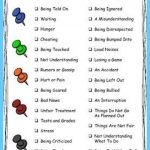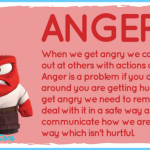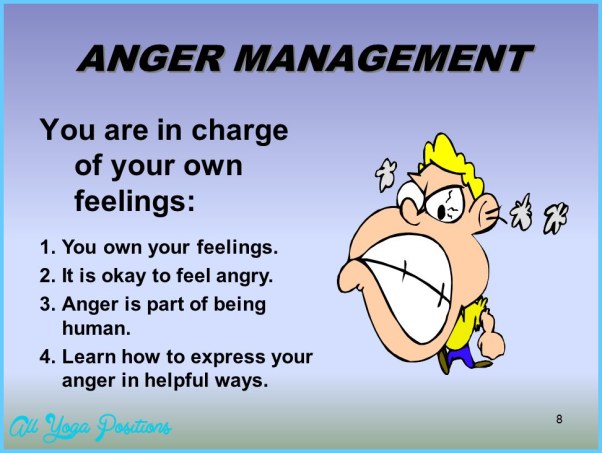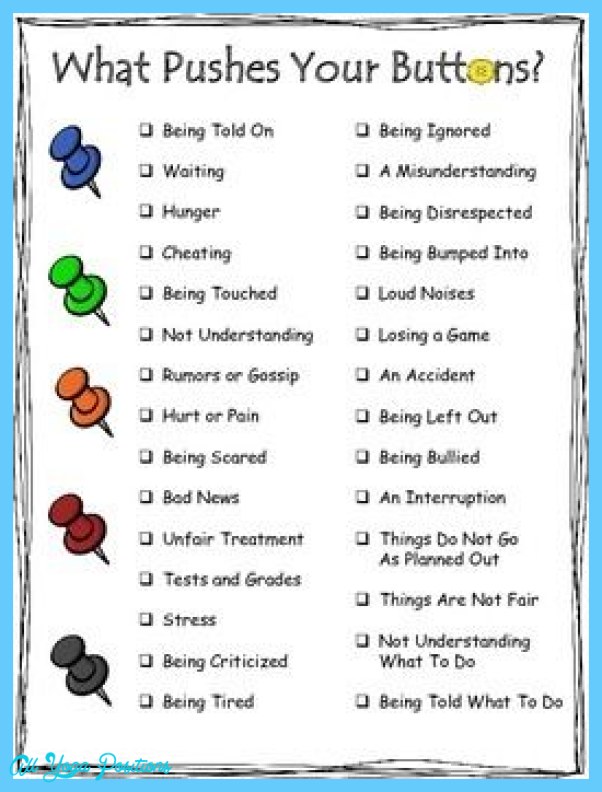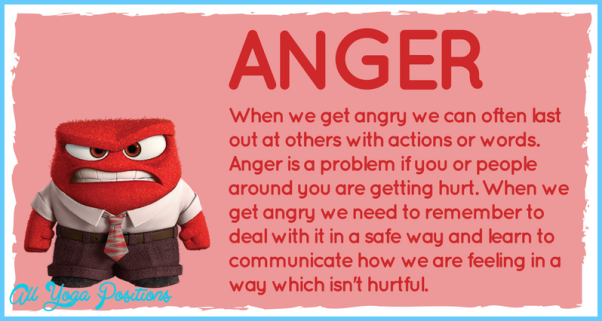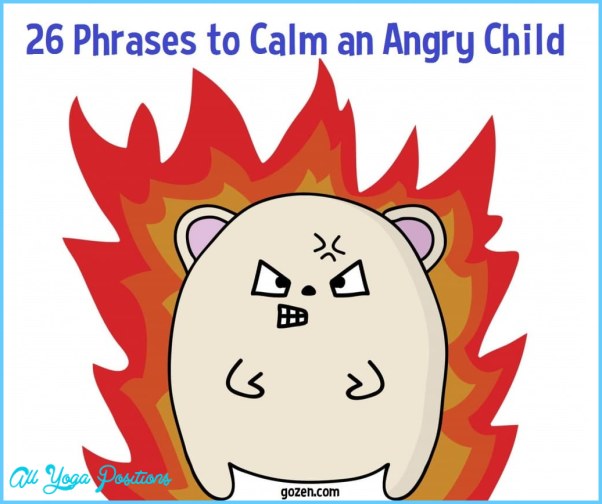Managing Your Own Anger
What are the best ways to handle anger? If you find yourself in a situation where you are getting angry, answer these questions:
• Is the situation important enough to get angry about?
• Are you truly justified in getting angry?
• Is expressing your anger going to make a positive difference?
If the answer to all these questions is yes, then calm, assertive communication may be appropriate. Use “I” statements to express your feelings (“I would like . . .” “I feel . . .”), and listen respectfully to the other person’s point of view. Don’t attack verbally or make demands; try to negotiate a constructive, mutually satisfying solution.
If you answer no to any of the questions, try to calm yourself. First, reframe the situation by thinking about it differently. Try these strategies:
Managing Your Own Anger Photo Gallery
• Don’t take it personally maybe the driver who cut you off simply didn’t see you.
• Look for mitigating factors maybe the classmate who didn’t say hello was preoccupied with money concerns.
• Practice empathy try to see the situation from the other person’s point of view.
• Ask questions clarify the situation by asking what the other person meant. Avoid defensiveness.
• Focus on the present don’t let this situation trigger thoughts of past incidents that you perceive as similar.
Second, calm your body down.
• Use the old trick of counting to 10 before you respond.
• Concentrate on your breathing, and take long, slow breaths.
• Imagine yourself in a beautiful, peaceful place.
• If needed, take a longer cooling-off period by leaving the situation until your anger has subsided.
Dealing with Other People’s Anger
If someone you are with becomes very angry, try these strategies:
• Respond asymmetrically remain calm. Don’t get angry in response.
• Apologize if you think you are to blame. (Don’t apologize if you don’t think you are to blame.)
• Validate the other person by acknowledging that he or she has some reason to be angry.
However, don’t accept verbal abuse.
• Focus on the problem and ask what can be done to alleviate the situation.
• If the person cannot be calmed, disengage from the situation, at least temporarily. After a time-out, attempts at rational problem solving may be more successful.
Warning Signs of Violence
Violence is never acceptable. The following behaviors over a period of time suggest the potential for violence:
• A history of making threats and engaging in aggressive behavior
• Drug or alcohol abuse
• Gang membership
• Access to or fascination with weapons
• Feelings of rejection or aloneness; the feeling of constantly being disrespected; victimization by bullies
• Withdrawal from usual activities and friends; poor school performance
• Failure to acknowledge the rights of others
The following are immediate warning signs of violence:
• Daily loss of temper or frequent physical fighting
• Significant vandalism or property damage
• Increased risk-taking behavior; increased drug or alcohol abuse
• Threats or detailed plans to commit acts of violence
• Pleasure in hurting animals
• The presence of weapons
Don’t spend time with someone who shows these warning signs of violence. Don’t carry a weapon or resort to violence to protect yourself. Ask someone in authority or an experienced professional for help.







